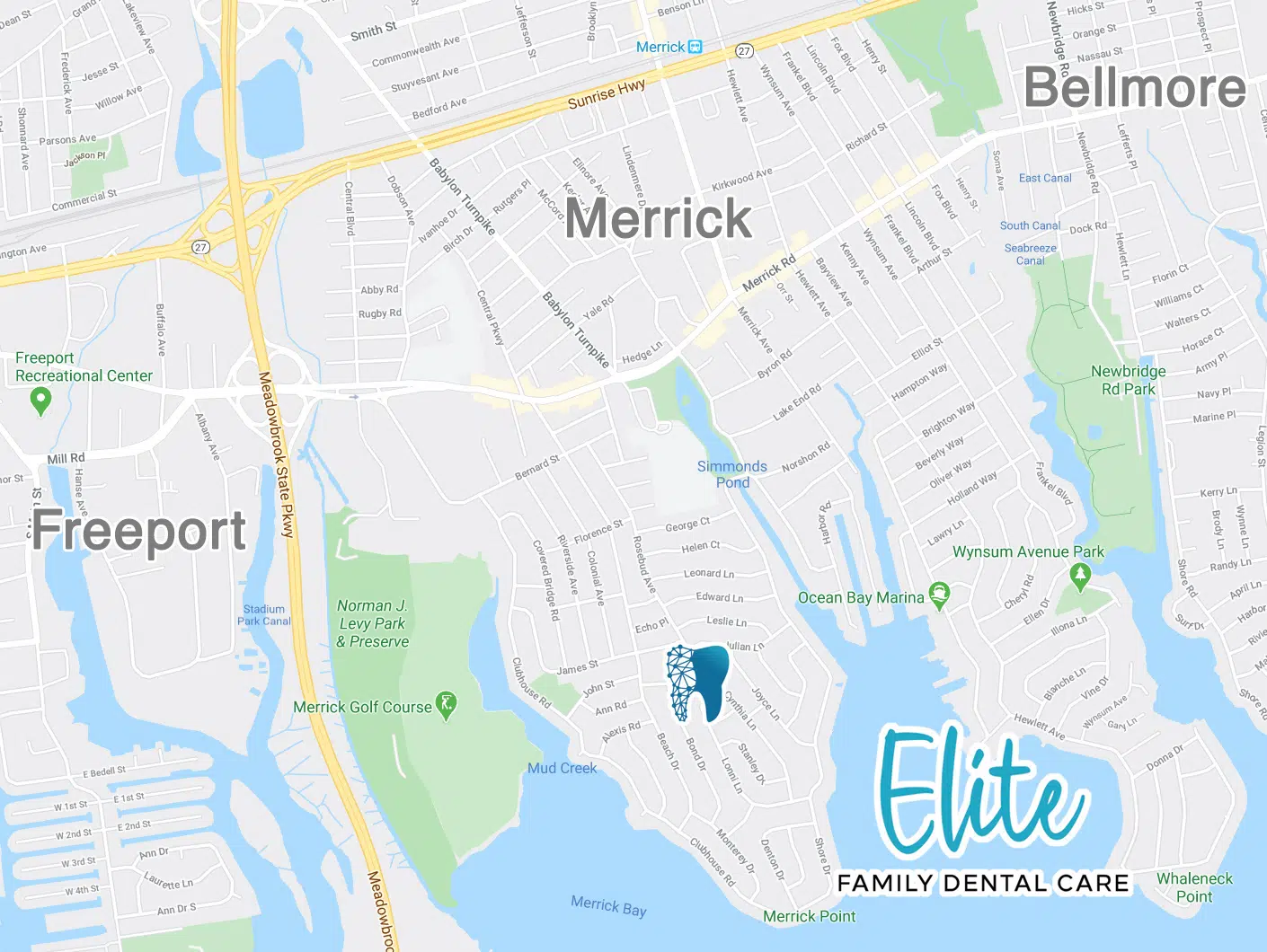
Elite Family Dental Care offers endodontic services in Merrick, NY. To learn more or schedule an appointment, call 516-608-0001.
Endodontics is the dental specialty that deals with the dental pulp inside of a tooth. Within the dental pulp are the tooth nerves. When a tooth is compromised, the inside can be susceptible to decay. An endodontist treats the inside of the tooth in order to save the tooth structure.
Our primary goal is to save your natural teeth whenever possible. Root canal, or endodontic, treatment may be necessary when the pulp tissue inside the root canals of a tooth becomes infected or damaged, which can be caused by dental trauma or decay. The pulp, which is located inside the root canals, contains blood vessels, nerves, and connective tissue. A tooth generally has between one and four root canals. A root canal procedure may be performed on a single root canal or multiple root canals within a tooth.
Root canal treatment
During this procedure, the crown of the tooth is opened, allowing the doctor to access the root canal. The pulp tissue in the infected root canal is removed and the canals cleaned. A series of files is used to remove any remaining tissue, slightly enlarge the canals, and smooth the walls of the canals. Once any infection has completely cleared up, which could take a few days or longer, the root canals are sealed with a material called gutta percha or with root canal sealer to prevent bacteria or debris from entering the root canals and causing further infection. Finally, the crown of the tooth is sealed with a filling or crown.
Endodontic treatment
Occasionally a tooth that was treated months or years ago may develop new problems. In some cases, a tooth that has received endodontic treatment fails to heal or continues to have pain. You may have another chance to save the tooth with a second endodontic procedure.
Pulpotomy
The blood vessels, nerves, and tissue that keep a tooth healthy and alive are located in the tooth’s pulp, which is protected by the outer enamel and tooth structure. Sometimes the pulp can become infected. The infected pulp can be removed with a pulpotomy. A medicated dressing is then placed in the tooth chamber to prevent further infection and to promote the healing of the remaining pulp. The chamber is then sealed. Because this procedure is often performed on deciduous (baby) teeth, it is sometimes referred to as a baby root canal.
Endodontic or apical surgery
In some cases, it may be necessary to remove the infected root tips or apex and the nearby tissue. This is known as an apical surgery or an apicoectomy. The area around the apex of the tooth that is infected is cleaned, and the tip of the root is resected and sealed. Sutures are placed and an ice pack is applied. Medication is prescribed to help alleviate any pain or discomfort and it is best to plan to rest for the remainder of the day. Most patients will have some minor swelling and occasional bruising with some numbness.
Cracked teeth
Symptoms of a cracked tooth are varied and may include pain when chewing, temperature sensitivity or pressure sensitivity or a combination of these. Because the pain often comes and goes, it can be very difficult to recognize what is causing the problem. It can sometimes even be difficult to identify exactly which tooth is causing the discomfort.
Even small movement of the cracked tooth pieces during chewing can cause irritation to the tooth’s pulp, which causes pain. Similarly, when the bite is released, the crack can close quickly, causing sharp pain. Over time, the tooth pulp will become damaged. As this happens, the tooth will hurt more consistently. Cracks can sometimes lead to infections in the pulp tissue and spread to the surrounding gum and bone.
Dental trauma
Traumatic injuries can result in the need for dental treatment. Fractured or cracked teeth, a displaced tooth, or even a tooth that has been knocked out (avulsed) are common results of dental trauma. Each of these conditions requires specific treatment, dictated by the effect of the injury on the tooth, whether or not the tooth is deciduous (a baby tooth) or permanent (adult), and the time between the injury and treatment, among other considerations. Any dental trauma requires prompt medical evaluation and treatment. Treatment may include a splint, medication, a root canal or other procedures. Once treated, your tooth will be monitored to ensure it is healing as expected and so that any injuries or infections can be quickly resolved.


